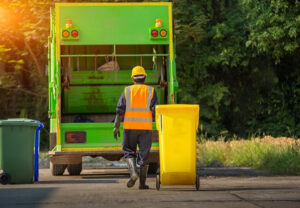Translated by Christopher Peterson
Bituruna is a town in the state of Paraná in southern Brazil. One of its main landmarks is the “Garrafão” or “Big Jug”, a sculpture 60 feet high depicting a wine jug, a brimming wineglass, and a bunch of red grapes. The townspeople descend from Italian immigrants, proudly boasting their title of state wine capital and attracting droves of wine-tasting tourists. But an equally important part of the local economy lies in the forests of slash pine trees, typical of the region. Biturana’s main export product is lumber. Last year, exports of manufactured wooden floor tiles, frames, lintels, jambs, dowels, sashes, panels, architraves, and other finished wooden pieces totaled 27 million dollars in international sales for local producers, or some 150 million Brazilian reais. The finished lumber is shipped to dozens of countries, but the biggest buyer by far is the United States, which imports 70% of what Bituruna exports every year.
At least the United States used to. Now, no local lumber producer dares to venture whether their products will still be wanted by the Americans next month. “The big tariff was a slap in the face,” according to 50-year-old Deputy Mayor Deco Coloda of the Brazilian Democratic Movement Party (MDB) in a telephone interview with piauí. Since August 6, following the decision by President Donald Trump, Brazilian lumber is subject to a 50% import tariff in the United States (the only exception is sawn wood, which is not produced in Bituruna). In other words, it now costs American importers 50% more to buy wood products from the Brazilian town. To avoid this bump, many American customers will likely turn to suppliers from other countries that offer the same quality at lower costs.
“We have no hope that the American market will absorb the new price. It’s just much too expensive,” Coloda said. His father, Arcindo Coloda, who passed away in July, founded Madcol, one of the five companies in Bituruna that specialize in wooden frames and plywood, in great demand by the U.S. construction industry (and used traditionally for homebuilding in cold climates). Coloda’s industrial plant can produce 140 thousand cubic feet of plywood a month. More than half of this production was shipped to the United States in a longstanding trade relationship that has virtually vanished in the last two weeks. Orders have dropped by 60% according to the deputy mayor. Eighty-seven of the company’s employees have already been laid off. The rest are working on a rotating basis.
Coloda’s competitors have made similar decisions to avoid bankruptcy, a “total freeze” on the town of Bituruna according to Coloda. “People are terribly discouraged. The effect still hasn’t reached the local tire repair shop, the mechanic, or the grocery store, but it’s only a matter of time.” He estimates that the tariff will affect nearly 90% of the town’s economic activity directly or indirectly. He fears that the town of 16 thousand inhabitants will suffer an exodus due to unemployment. “We are giving interviews on local radio stations for people to have an idea of what is happening and the reasons for it. It’s going to be devastating.”
Meanwhile, the rule in the factories has been to avoid the media. “[The bosses] don’t want to leave the impression that local companies are going bankrupt. This could affect the remaining orders,” said an employee from an export company on condition of anonymity. Lumber and furniture companies employ some 80 thousand people in Paraná, more than any other state of Brazil.
The devastation mentioned by the deputy mayor has been seen in many other cities that have the lumber industry as their economic backbone. The Millpar company, which makes wooden frames, shut down production entirely in its factory in Quedas do Iguaçu, also in Paraná state. Its only customers were Americans. Today, 720 of the 1,100 employees are on furlough. They still receive their wages, but the company saves on production costs. In Telêmaco Borba, Paraná, the Braspine company, which exports wooden frames and pallets, has placed 1,500 employees (half of its workforce) on mandatory vacation leave.
Nearly every day, stories like this reach ABIMCI, the Brazilian Association of the Mechanically Processed Wood Industry, with its headquarters in the Paraná state capital of Curitiba. Since Trump has shown no sign that he intends to renegotiate, the producers have been loosing sleep. “Finding new markets is not a possibility in our industry, in either the medium or long term. It took decades to conquer the American market with specific products. There’s no demand from other markets that can absorb what we export to the United States, even if we were to export to the entire world,” explained Paulo Pupo, superintendent of ABIMCI.
Deputy Mayor Coloda has heard reports from businessmen that are already on medication for anxiety. And he predicts that of the relief package of 30 billion reais (5.4 billion dollars) announced by Lula to help the industries most affected by the tariff, little or nothing will reach Bituruna. “All of Brazil will be fighting for those funds,” he complained.
Beef, fish, fruit, coffee, steel, aluminum, lime, cement, footwear, industrial machinery, sugar, molasses, cocoa… The list of exports impacted by the big tariff is long, an unprecedented measure in Brazil’s recent history. The surcharge has made the sale of part of these products to the United States impossible, causing damage to small and medium-sized cities in Brazil that depend on trade with American clients. The Inter-Union Department of Statistics and Socioeconomic Studies (DIEESE) has calculated that if the tariff is maintained for a year and there is no comprehensive solution to market products to other countries, Brazil may lose 727 thousand jobs and 11 billion reais (nearly 2 billion dollars) in tax revenue.
Many other countries have been hit with surtaxes since Trump’s inauguration in January, but except for India, no other nation has suffered such a big increase as Brazil. In the Brazilian case, Trump’s tariff is not a trade strategy, but blackmail to free former president Jair Bolsonaro from prosecution for leading an attempted coup d’etat. First, in April, Trump imposed a 10% tariff on all products exported from Brazil to the United States. On “Liberation Day”, as Trump called it, other countries were hit worse than Brazil, like Cambodia, slapped with 49% and Vietnam with 46%. But then in July, in a public letter to Lula, Trump pushed Brazil to the head of the list, increasing the tariff to 50% while criticizing what he called a “witch hunt” against Bolsonaro. Other countries have had their tariffs reviewed by Trump. The tariff on Brazil, however, still stands.
The U.S. government announced a list of 694 products that were spared from the second blow in Brazil, including crude oil, kerosene, mica stone, aircraft, orange juice, coal, and iron ore. These are still subject to the 10% tariff. Company owners in other industries are trying to negotiate clemency. There are coffee producers with their product bagged and ready for export, but sitting in warehouses, since American buyers have been scared off by the tariff and are postponing their orders.
“The week the big tariff was announced, I wept so hard … I have an employee that I was planning to promote, but I’ve already told her it won’t be possible now,” said a woman who grows coffee in Minas Gerais, during an interview with piauí, on condition of anonymity. She said that for more than a month she has been calling every day to an American client, a coffee buyer in the U.S. South. She has been waiting for a green light from him to ship 640 sacks of premium green coffee beans that have been sitting in her warehouse since mid-July. The customer ordered the lot in June but canceled when he learned of the big tariff, which would cost American consumers 50% more.
Normally, when a client backs out of an order, the supplier is not left high and dry: a clause in the contract guarantees that the seller receives at least 20% of the amount in the order. But the coffee-grower in this case said that since she had done business with the American for three years and that they were on good terms (he had even visited her farm in Minas Gerais), she did not see any risk in selling to him without a contract. As a result, if he backed out, she would have to bear the entire loss. And it was no small matter: the 640 sacks are enough to fill two containers from the Santos Port, each worth 900 thousand reais or 160 thousand dollars (based on coffee futures on the New York Coffee, Sugar, and Cocoa Exchange).
This exasperating routine left the woman with bruxism and anxiety. “I have to take half a trazadone every night to sleep,” she said. She is searching now for buyers in Dubai to replace the sales she has lost. Meanwhile, just the other day she received a breath of relief: one of her American customers agreed to buy a whole container despite Trump’s exorbitant surtax.
Natasha Castellan received the worst possible news on July 5: Lula announced an agreement to buy tilapia from Vietnam in exchange for Brazilian beef. Since the Vietnamese fish is cheaper than Brazilian tilapia due to the difference in production costs between the two countries, Castellan was in trouble. She is the director of finance and exports for Brazilian Fish, a company in Santa Fé do Sul, São Paulo state, that exports tilapia that are fished from the Paraná River. She knew that her fish (sold both fresh and frozen) would soon lose their competitive edge in Brazilian supermarkets.
Talking with colleagues, Castellan devised a business strategy: the company would start exporting more tilapia to the United States, reducing its dependence on Brazil’s domestic market. It was not an outlandish plan, because 20% of production by the Brazilian Fish company was already sold to the American market, where tilapia has become increasingly popular. The fish caught in the Paraná River took 48 hours to reach the American importer. It was loaded onto a truck that took it from the packing plant to the Guarulhos or Campinas airport. It was flown at 10 PM and landed in the United States at 6 AM on daily flights.
Castellan’s plan only lasted five days. On July 10, Trump’s sour letter suspended the plans by Brazilian Fish to expand the company’s U.S. sales. The company was trapped between competition from Vietnam and doors closed on the American market. Trump’s announcement was a terrible blow for Santa Fé do Sul, a city that mainly exports beef and fish, both hit with the 50% tariff. Beef is exported mainly to Turkey, while fish goes almost entirely to the United States, which paid 5.8 million dollars for the tilapia produced there in 2024.
“The tariff has made our trade with the United States impossible,” said 41-year-old Castellan. Since August 6 when the surtax was implemented, orders from American buyers have fallen by half. Like the lumber companies, local fish companies have no other markets to explore. China, Brazil’s main overall trade partner, is the world’s largest producer of tilapia and already supplies countries where Brazilian production could otherwise be marketed. Countries like Indonesia and Egypt also enjoy thriving tilapia sales. Brazil’s loyal tilapia buyers are not big enough to compensate for the US.
Castellan is married to a fish farmer from Rubinéia, a town near Santa Fé do Sul. “My father-in-law started the business 16 years ago. He leased three fishponds and had just five employees. My husband runs the business today and has 75 employees,” Castellan said. The couple is completely familiar with the export chain for tilapia, all the way from raising fry to the fish food supply. They know that the blow from the big tariff is going to be widespread and will change the economy of western São Paulo state if there is no renegotiation. Brazilian Fish has 600 employees and has not announced any impending layoffs so far.
The company run by Castellan’s husband recently took out a loan to expand their business. Neither of them could have foreseen what was coming, and now they are worried about making the loan payments in the middle of the crisis. “We’ve done everything we could. The rest is in God’s hands. We have faith. That’s the only way we can sleep at night,” she said.









